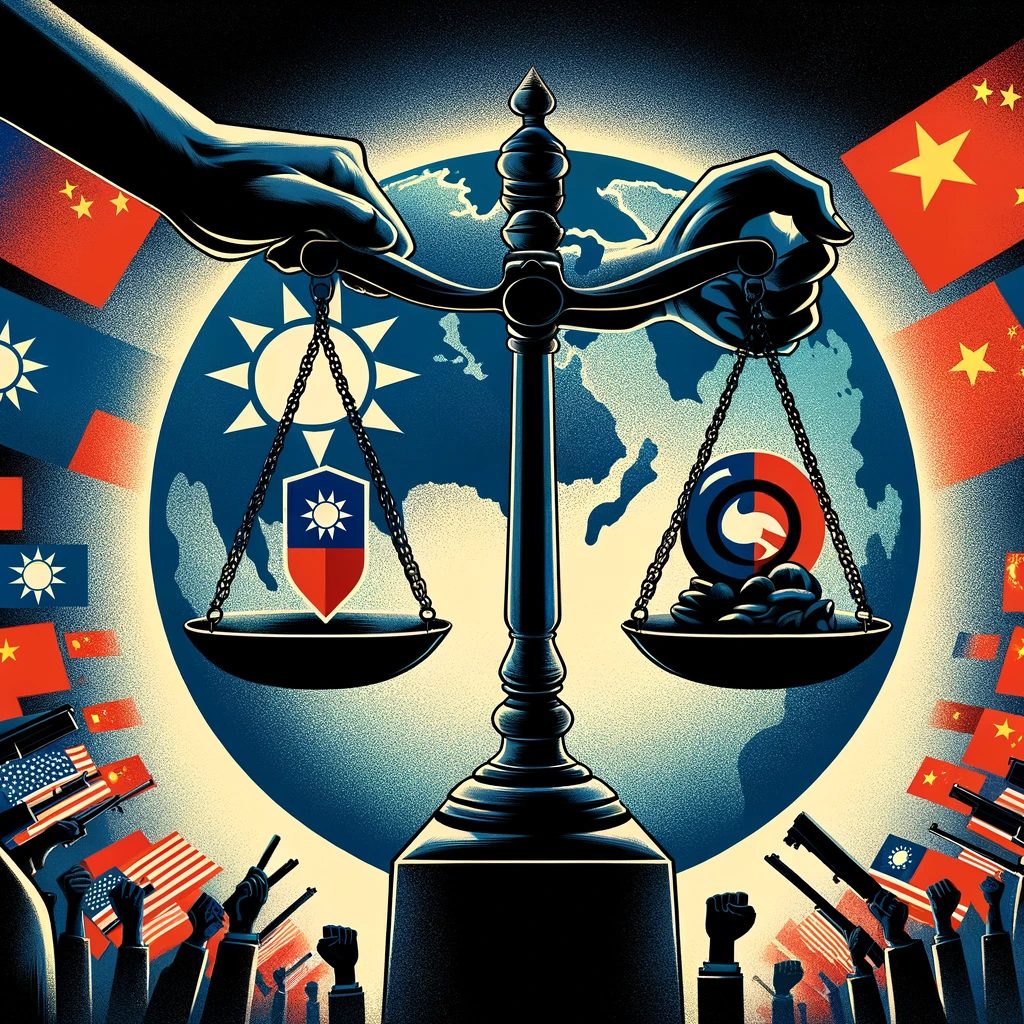China’s Strong Opposition to Taiwan’s Unification Impasse in the Presidential Election
In a recent development, China has shown intense opposition amidst the growing impasse over Taiwan’s unification. This reaction follows the Taiwanese presidential election, a pivotal event that has garnered global attention. The election results reflect Taiwan’s political landscape and its complex relationship with mainland China. This situation is not just a regional issue but holds significant implications for international diplomacy and security dynamics in East Asia.
User Comments Summary:
- User: ybu******** “Taiwan, like many other countries, faces Chinese intervention in elections, attempting to instill the notion that anti-China sentiments lead to economic hardship. This is a cunning strategy and a precursor to war. To counter China’s intentions, the democratic alliance must unite, with Japan playing a key role by expanding trade with Taiwan to bolster its economy, which also benefits Japan.”
- User: rec******** “Taiwan, which promptly offered humanitarian aid and donated 40 million yen after the Noto earthquake, has collected over 1.4 billion yen in donations from its citizens. Japan cannot abandon Taiwan and should strongly support it, including seeking the backing of the U.S. The actions and wisdom of Japan are crucial not just for Taiwan but for oppressed peoples under the Chinese Communist Party and countries worldwide.”
- User: roc******** “Observing Taiwan, it’s evident that if it unifies with China, Japan will face a similar fate. Okinawa is targeted by China, and Hokkaido by Russia. With a passive government, occupation is inevitable. The Ukraine conflict has shown that opposing war equals territory relinquishment. Japanese citizens must decide whether to surrender or fight for their land. The reality of nuclear-armed nations being untouchable by even the U.S. must be acknowledged.”
- User: sin******** “Taiwanese citizens prefer to separate politics from economics. Japan, a non-permanent member of the UN Security Council, cannot afford a moratorium attitude, differing from Taiwan. In a crisis, Taiwan’s choice remains unclear, suggesting Japan’s political non-involvement with Taiwan is wise.”
- User: SYNC “China’s Communist Party disregards any opinion not aligning with its own as non-representative of the people. Even if the presidential election had a larger margin, China would react similarly. The election outcome, influenced by concerns over Hong Kong’s situation, reflects Taiwan’s wariness of ‘Hong Kong-ization’ and skepticism towards pro-China policies. Given Xi Jinping’s age and lifelong position, increased pressure on Taiwan is a worrying possibility.”
- User: バニシングポイント “Japan’s low voter turnout, except in Okinawa, contrasts with Taiwan’s high engagement, reflecting its advanced democracy, including support for same-sex marriage. Taiwan won’t easily accept unification with China, having witnessed Hong Kong’s suppression
- User: muk******** “Despite China’s influence, Taiwan successfully resisted in the presidential election. This is a lesson for Japan, particularly regarding local governments defying national laws. It’s imperative for Japan to address such issues.”
- User: ntj***** “Taiwan’s election outcome, favoring democracy over authoritarianism, seems inevitable given Hong Kong’s current situation. Taiwan’s strategic military alignment with the U.S. and its balanced economic approach towards China indicate a wise choice by its citizens.”
- User: leo******** “The fate of Hong Kong under China is a clear indicator of what would happen to Taiwan if annexed. This understanding among Taiwanese people is crucial. The possibility of China resorting to military unification is alarming, and Japan should strengthen military ties with Taiwan and the U.S. as a deterrent.”
- User: ヤホ一をcheck! “Taiwan’s victory, reflecting the will of its people, could influence elections worldwide. This victory underlines the importance of citizen participation in politics to change flawed political systems. Taiwan’s example should inspire Japanese citizens to be more politically active.”
Analysis:
The comments reflect a broad spectrum of opinions and concerns, ranging from strategic political maneuvers, economic implications, to the broader geopolitical landscape involving Taiwan, China, and other global players like the U.S. and Japan. There’s a clear emphasis on the significance of Taiwan’s democratic processes and the potential repercussions of China’s assertive policies in the region. The situation is viewed as a bellwether for regional stability and international relations in East Asia.










